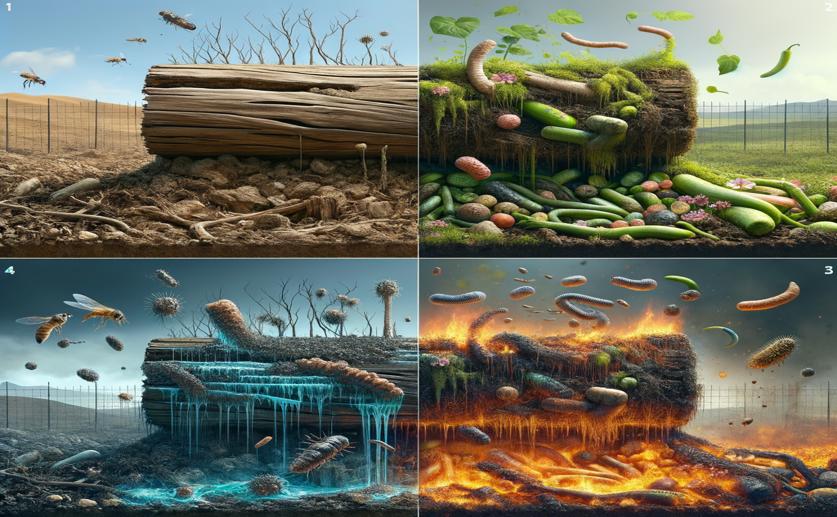
How Climate Change and Nutrients Affect Decomposition: A Comprehensive Study
Jenn Hoskins
24th May, 2024

Image Source: Natural Science News, 2024
Key Findings
- The study focused on litter decomposition in cold northern biomes to understand its impact on carbon cycling and global warming
- Direct warming significantly speeds up litter decomposition, but this effect varies with plant species
- Shrubs with slow-decomposing leaves may slow down decomposition despite warming, potentially counteracting some global warming effects
EnvironmentSustainabilityEcology
References
Main Study
1) Stoichiometry of litter decomposition under the effects of climate change and nutrient enrichment: A meta-analysis
Published 23rd May, 2024
https://doi.org/10.1007/s11104-024-06718-3
Related Studies
2) Early stage litter decomposition across biomes.
3) Global negative vegetation feedback to climate warming responses of leaf litter decomposition rates in cold biomes.
Journal: Ecology letters, Issue: Vol 10, Issue 7, Jul 2007
4) Present and future Köppen-Geiger climate classification maps at 1-km resolution.



 17th March, 2024 | Greg Howard
17th March, 2024 | Greg Howard